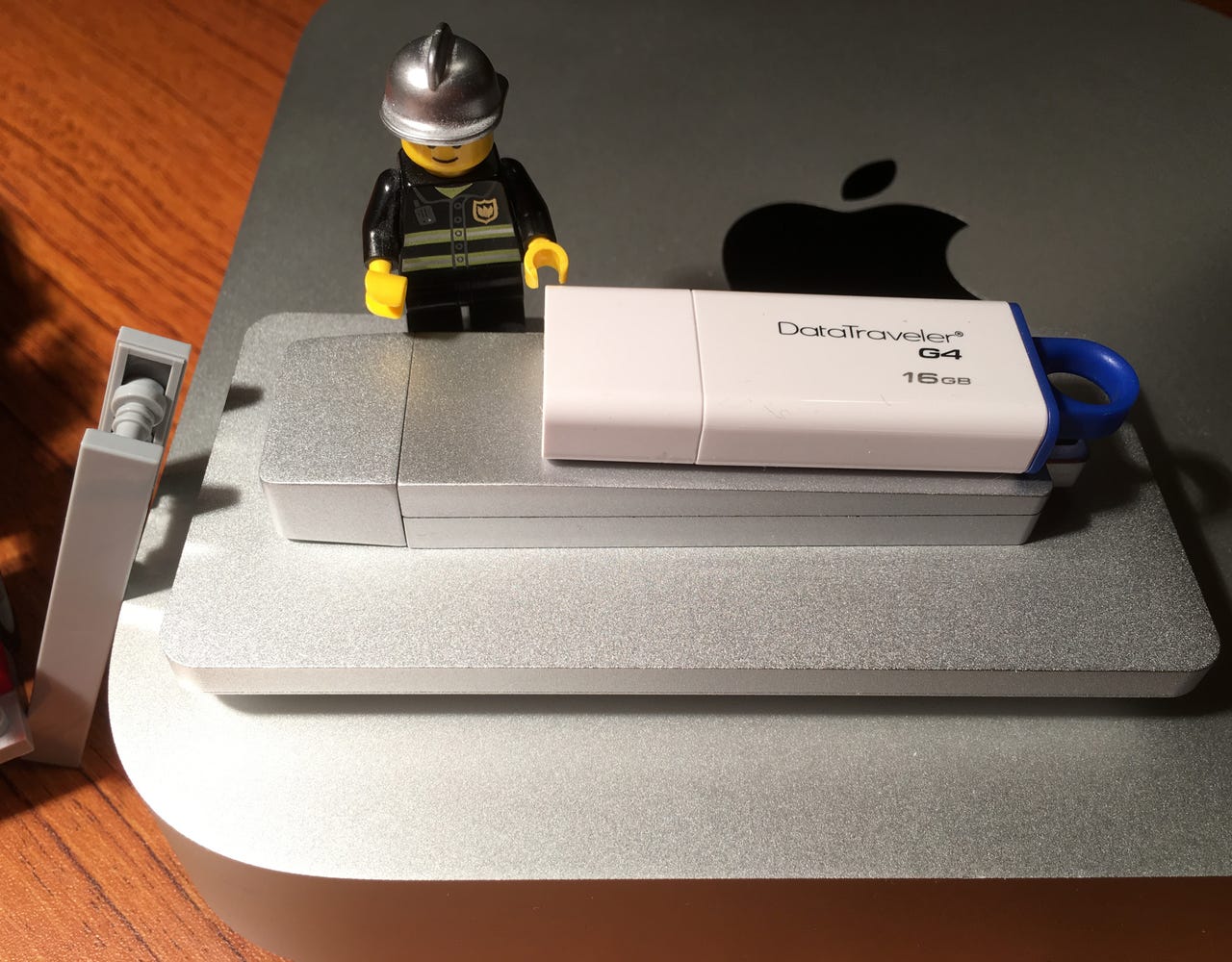We tested a new breed of USB stick that's 16x faster, holds 240GB


We look at three small drives and make some very surprising discoveries.
Flash drives. Thumb drives. USB sticks. Whatever you call them, you use them and depend on them. They are incredibly useful and convenient. And, like most storage technology, their capacity has increased over the years. But sadly, their speed has not. Until now.
special feature
I want to introduce you to a thumb drive that's 16 times faster than a typical USB 3.0-based thumb drive.
Even though most machines today come with USB 3.0 interfaces, the normal run-of-the-mill thumb drive doesn't really take advantage of the speed that USB 3.0 makes possible. In large part, that's because it's tough to get enough chips inside the small thumb-drive size container.
You get speed in a couple of ways. You get it because an individual component itself is fast. Of course, the faster the component, generally the more expensive, the more power it uses, and the more heat it generates.
But you also get speed, particularly in storage, through parallelism: multiple components doing activities at the same time. By combining parallelism with smart controllers, it's possible to take data that's coming into the controller, split it up into parallel units, and let the components process that data concurrently.
Generally speaking, that's what you see in traditional SSD drives and even in the mSATA form factor. Both of those, however, are a bit larger than the typical thumb drive. A few weeks ago, in External SSDs: Not super fast, but cheap, convenient and very small, I described how mSATA-based SSDs are becoming available at reasonable price points.
The mSATA-based external SSDs are increasing in performance and generally are efficient enough that they can run off of USB-provided power, so they don't need a power cord. Even so, they generally require a cord to connect to a computer's USB connection and while small, they're not as small as a thumb drive.
Enter the solid-state, high-performance thumb drive. This category of drive is very slightly larger than a thumb drive, but has the performance of an external SSD.
The folks at Other World Computing reached out and provided me with the Envoy Pro mini, a 240GB thumb drive based on the higher-performance technology I've been discussing.
The Envoy Pro mini is very small physically, but has a lot of capacity and it's very fast.
In order to understand the speed benefits of the Envoy Pro mini, I went up to Amazon and bought a top-reviewed Kingston USB 3.0 thumb drive, in this case a 16GB unit, for all of about five bucks. By comparison, the 240GB Envoy Pro mini is $169. But it's also a heck of a lot faster.
Traditional USB 3.0 Kingston thumb drive won't be lighting any fires.
I subjected both drives to the Blackmagic Disk Speed Test and the numbers show an extreme difference in performance, despite both being USB 3.0 devices. The Envoy Pro mini is 16 times faster than the traditional USB thumb drive.
The new solid-state thumb drive from OWC is 16 times faster the more traditional USB 3.0 drive.
In fact, the Envoy Pro mini is so fast, it's possible to actually do production work right on the drive, rather than on an internal drive. This drive can be a working drive, not just a storage container you copy files to before sending it out over the sneaker net.
OWC also sent me the Envoy Pro EX, a drive that's roughly the same physical size as the one I discussed in my previous article, but with twice the capacity, 480GB. The Envoy Pro EX is also considerably more expensive than the OTG from MyDigitalSSD, but hopefully that cost translates into improved reliability.
OWC Envoy Pro EX hold a lot in a very small space.
My inexpensive OTG drive failed within a week of using it. OWC has long had a solid reputation for good drives, so I would be quite surprised to see the kind of flaming failure the MyDigitalSSD drive suffered from.
That said, the Envoy Pro EX, while faster than the Envoy Pro mini, wasn't quite as fast as the failed OTG. You can see all the speed results in our ever-growing Table of Storage Performance:
| Configuration | Write (MB/s) | Read (MB/s) |
|---|---|---|
| 2015 MacBook Pro internal flash storage | 1098.3 | 1049.8 |
| 2013 iMac with internal flash storage | 708.6 | 728.7 |
| 2012 Mac mini server, Apple internal SSD | 396.1 | 448.3 |
| 2012 Mac mini server, OTG external SSD | 285.1 | 421.8 |
| 2012 Mac mini server, OWC Envoy Pro EX external SSD | 260.5 | 418.2 |
| 2012 Mac mini server, internal upgraded SSD | 174.2 | 501.9 |
| 2012 Mac mini server, OWC Envoy Pro mini thumb | 150.9 | 208.1 |
| 2011 Mac mini server, 7200 RPM hard drives | 79.4 | 89.1 |
| 2012 Mac mini server, Kingston thumb drive | 8.8 | 49.3 |
Ever-Growing Table of Storage Performance
Overall, the key winner here seems to be the Envoy Pro mini. It's smaller and slightly less speedy than its big EX brother, but it's incredibly portable and blazingly fast compared to traditional thumb drives.
Finally, after my experience with the OTG MyDigitalSSD, I'd recommend staying away from off-brand external SSDs. Your data is too important.
Best high-performance storage devices for your PC or Mac
You can follow my day-to-day project updates on social media. Be sure to follow me on Twitter at @DavidGewirtz, on Facebook at Facebook.com/DavidGewirtz, on Instagram at Instagram.com/DavidGewirtz, and on YouTube at YouTube.com/DavidGewirtzTV.